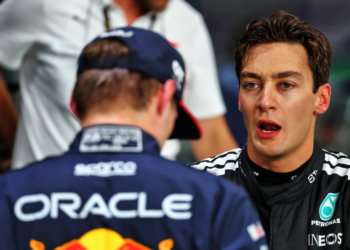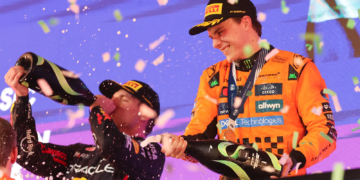Mercedes F1 CEO and Team Principal Toto Wolff has spoken of the dramatic changes that the German team are planning for the 2023 Formula 1 championship, stating that the “DNA” and “architecture” of the car are set to change.
After eight consecutive Constructors’ Championships to their name, Mercedes will be looking at increased wind tunnel time following Red Bull’s recent triumph of double world championships.
The W13 hasn’t shown the levels of dominance this year that the championship-winning predecessors had shown from 2014 through to 2021 and Wolff clearly knows that things will need to change.
“The DNA of the car is going to change for next year, that’s clear,” he said.
“It doesn’t necessarily mean that our bodywork is going to look very different. But certainly, what is part of the DNA of the car, the architecture of the car, will change for next year.”
Lewis Hamilton was just a few laps away from winning his first race of the 2022 season in Austin, but Max Verstappen and his world-beating RB18 fared too quick for the seven-time champion.
Hamilton looked quicker in the first sector, but Verstappen clawed back huge amounts of time in the second sector which featured a kilometre-long back straight.
When asked why the W13 struggles on the straights, Wolff replied: “ A few reasons, I think our car is just too draggy overall. It’s something that we need to figure out for next year.
“The cost cap played a role, we can’t just produce infinite amounts of low drag bits or spend a lot of time in the wind tunnel to come up with solutions.”
With the extra time allotment of wind tunnel usage for the development of the 2023 car, Wolff is optimistic: “We won the Constructors’ Championship so all of the half year of 2022, we had seven per cent less wind tunnel time throughout these 18 months than Red Bull, and much less than Ferrari.
“Now it seems the other way around. Compared to Red Bull, we are going to have 14 per cent more if we finish third. So that over time is exactly what the regulations were designed to [do]. It should give us the potential to eke some of the advantage out, claw it back.”









